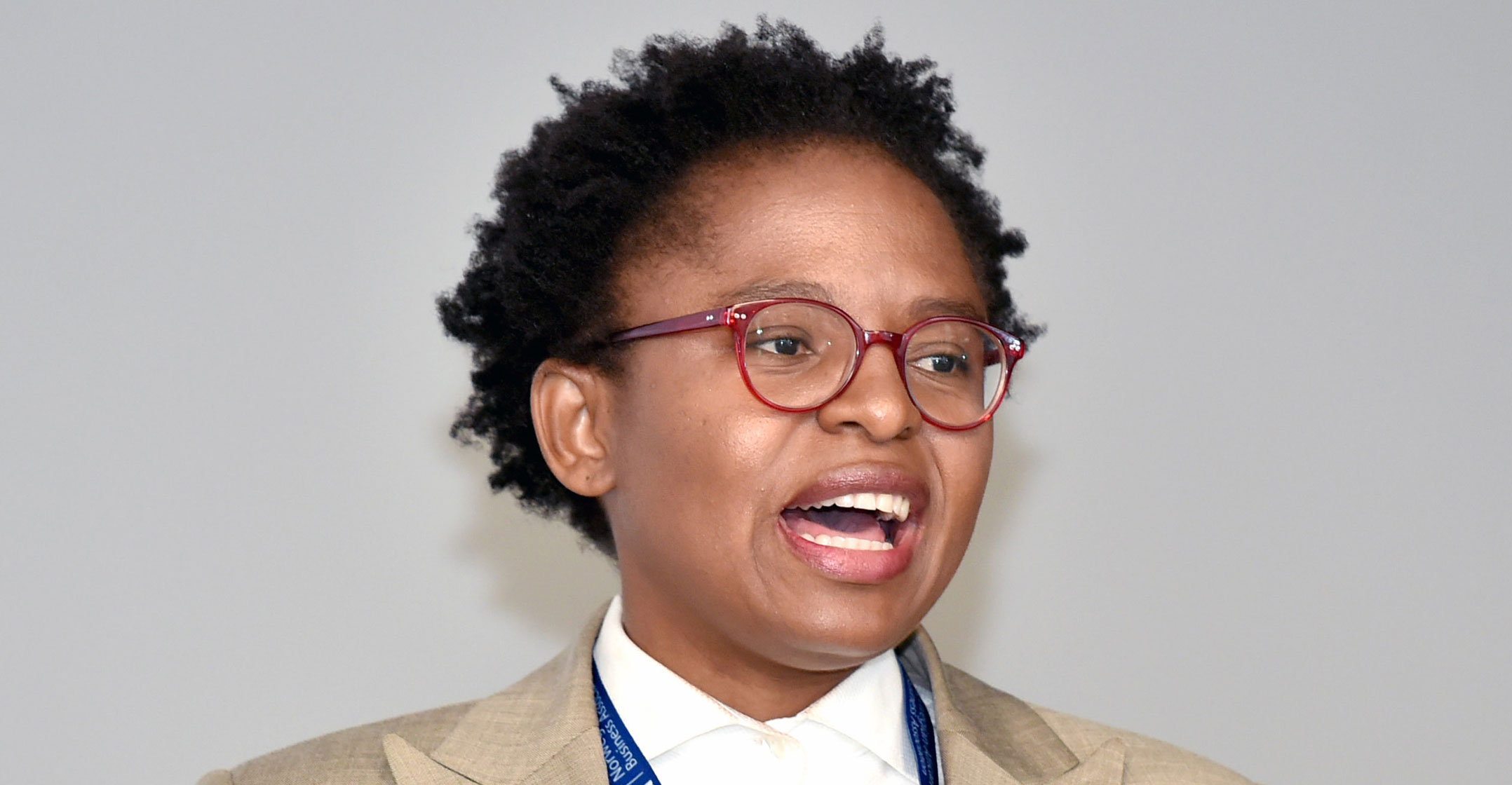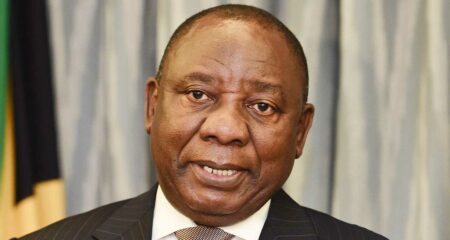
Khumbudzo Ntshavheni has hardy had a chance to warm the chair in her new office in Pretoria. Yet the newly appointed communications minister needs to act with haste to try to resolve the spectrum licensing crisis that is now engulfing the ICT sector.
More than a decade after South Africa should have licensed spectrum suitable for 4G/LTE services, the process has once again been thrown into chaos, this time following legal action by Telkom and eMedia Holdings, which are aggrieved by the procedures used by communications regulator Icasa and the impact on competition in the sector. (Some of Telkom’s rivals privately accuse it of little more than delaying tactics to protect its commercial interests).
Earlier this month, Icasa effectively conceded defeat in its fight with Telkom over the planned spectrum auction, agreeing to consent to a high court order setting aside the decision to publish invitations to apply (ITAs) for both the auction and the interrelated licensing of a planned wholesale open-access network, or Woan.
“Icasa has now decided to consent to an order setting aside its decision to publish the ITAs in order to avoid long, drawn-out litigation, the effect of which would only be to delay further the licensing of high-demand spectrum and the Woan,” the regulator said in a statement on 7 September.
The move was seen as a big victory for Telkom, which wasted no time issuing a statement stating basically as much. “Inherent in Icasa’s decision to withdraw its opposition is a concession that the ITAs are irredeemably flawed. This licensing process will hopefully speed up a fair and equitable licensing process, which will benefit all South Africans,” Telkom CEO Sipho Maseko said in the statement.
Back to the starting blocks
The problem is, Icasa’s decision takes the spectrum licensing process back to the starting blocks – in effect, all the way back to 2016, when it last tried to license the so-called “high-demand” bands suitable for delivering speedy wireless broadband services. At the time, former communications minister Siyabonga Cwele stupidly derailed that process, challenging Icasa’s licensing plan in the high court.
Legal and regulatory experts I have spoken to say Icasa had little prospect of success if it chose to fight Telkom (and eMedia) in court. Indeed, the prevailing view seems to be that Icasa should have withdrawn the ITAs the moment it became clear that they were flawed and then immediately started work on republishing them so as not to waste any more precious time. Instead, its nose out of joint, it threatened to take the matter on review to the supreme court or the constitutional court. That threat quickly fizzled out.
After a decade of waiting, the time for grandstanding and finger-pointing should be over: It is now urgent that spectrum is released — networks risk becoming congested and operators’ costs are likely to rise as they are forced to densify infrastructure to cope with consumer and business demand for data, putting upward pressure on prices (or, at the very least, creating a pricing floor that prevents them from falling further). Unless spectrum is licensed soon, consumers could start to feel impact in their pockets.
Into this mix, Icasa has now said it will take back temporary spectrum assignments made available during the Covid-19 pandemic
Into this mix, Icasa has now said it will take back temporary spectrum assignments made available during the Covid-19 pandemic. As demand for data soared on the back of work-from-home measures, this spectrum has become a lifeline for operators. Demand has not – and will not – go back to pre-pandemic levels, yet Icasa, apparently worried about the potential for the emergency assignments to distort the market, now wants it returned.
For an agency that is meant to regulate in the interests of consumers, this could prove to be a grave mistake. Not only will operators not have access to new high-demand spectrum that should have been licensed around 2010, they’ll also lose the extra they have had access to in the interim to service the spike in demand. Taking back the spectrum now risks slowing down network speeds and interrupting the clear downward trajectory in data prices.
One senior industry executive told me recently that litigants, including Telkom, have “obviously exploited the enormous amount of incompetence at play” at Icasa over the way it has approached the licensing process. Instead of withdrawing the ITAs, Icasa doubled down, enriching lawyers and, in the end, being forced anyway to back down.
What happens next?
The question now is, what happens next? Icasa has intimated that it will continue talking to the litigants about finding a way out of the impasse. “Should the parties confine themselves to the matters currently on the table, with an appreciation that spectrum needs to be licensed urgently, on a more permanent and transparent basis, the auction of high-demand spectrum can take place by the end of January 2022,” said Icasa chairman Keabetswe Modimoeng. But no one in the industry polled by TechCentral believes that such a timeframe is even remotely feasible.
Icasa said, too, that it won’t abandon the auction model for licensing the spectrum. That’ll please national treasury, which needs the billions of rand that will flow to it through an auction with reserve prices, but not everyone in the ANC and government believes a spectrum model is appropriate for an emerging market like South Africa. Indeed, I hear from sources that the new minister, Ntshavheni, has been asking exactly these questions in recent weeks.
Though anything she does will be fraught with difficulty, Ntshavheni is potentially in a strong position now – she’s fresh to the portfolio and can, if she’s bold – make some clear statements and decisions now that could help end the current impasse. But she’ll need to be careful not to tread on the constitutional independence of Icasa – and be mindful of the egos at play, too.

She could issue a new policy direction in which she carefully and thoughtfully sets out a process for Icasa to consider that will expedite the licensing process. Though Icasa isn’t compelled to implement what the minister says in any policy direction, it can’t exactly ignore her either. A well-thought-out policy direction, crafted after meaningful consultations with industry players, could go a long way in overcoming the obstacles that remain in the way of a resolution. But it can’t be a rush job, despite the urgency.
At the very least, it now appears that Icasa will have to abandon and reissue the two ITAs to address the inadequacies identified by the litigants and by the high court. This cannot, however, take another five years – the industry, not to mention the broader economy, can’t afford to wait that long.
But it’s difficult to see how a quick resolution is possible. One extreme view, said an industry source, is for the litigation to run its full course. If that had happened in 2016, when Cwele sued Icasa, there’d now be case law, the source said. Instead, no progress of any consequence has been made in that time – and now it’s back to square one. But the industry can ill afford a court battle that drags on for years. The solution surely cannot be more litigation but for Icasa to get the process right – and doing so without any unnecessary further delay.
In many ways, the minister’s hands are tied. She is legally prohibited from interfering at Icasa. She could seek to change the law and the regulations to allow her to assign the spectrum directly, but that would set South Africa back to the pre-1994 era when the government was both policymaker and regulator. That’s clearly not desirable or in the long-term interests of the sector or South Africa’s development. It could also flout the constitution, which guarantees that South Africa’s broadcasting regulator (Icasa) is independent of the executive arm of government.
Political pressure
That doesn’t mean the minister – or even the president, for that matter – can’t make suggestions about how to solve the problem. Indeed, they should be doing so! A political solution may ultimately be the only way out of this damaging impasse. Though Icasa doesn’t take instruction from either Ntshavheni or Ramaphosa, it would be naïve if it were to ignore them. The application of a little judicious political pressure – whether it’s on Icasa or on the litigants – would probably be welcomed at this juncture.
At the end of the day, though, the ball is still in Icasa’s court and that ball cannot go anywhere else. It’s the regulator that must find the way out of this mess. But Ntshavheni should be doing all she can within the confines of the law to help Icasa. Her legacy as communications minister will be determined by what she does in the coming weeks and months to help resolve this crisis. – © 2021 NewsCentral Media
- Duncan McLeod is editor of TechCentral




